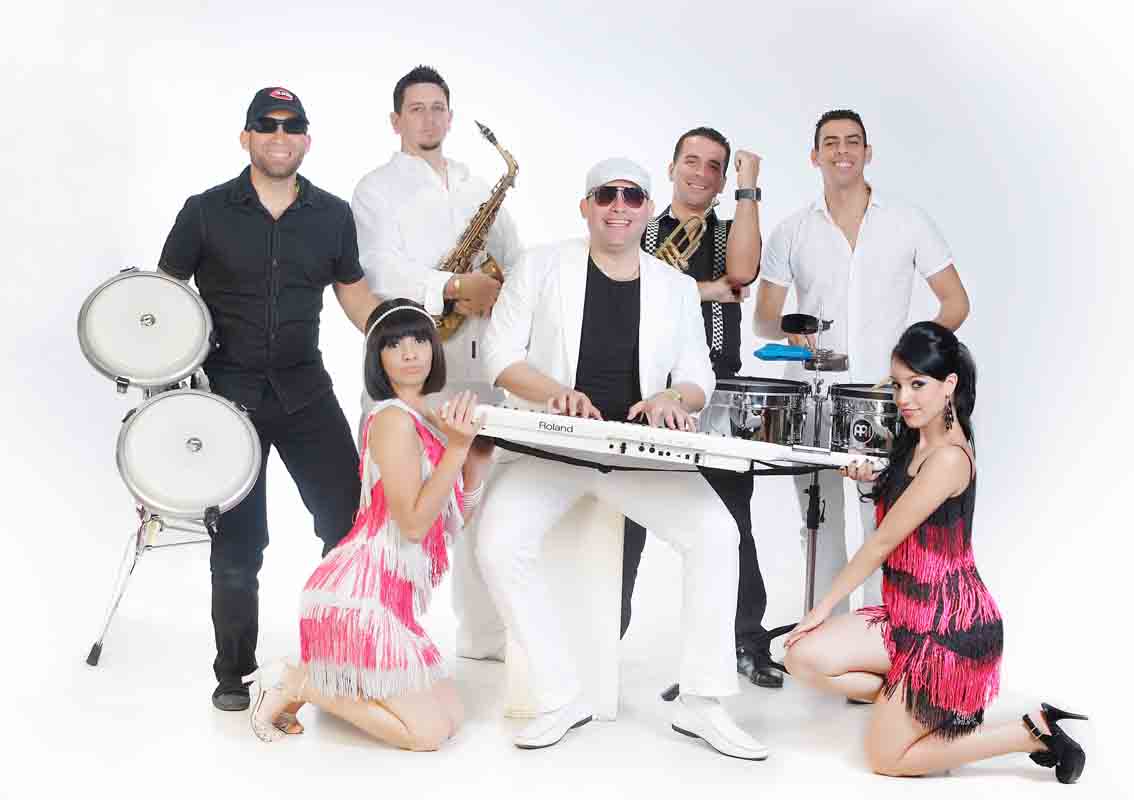When the Soviet Union imploded during the 1990s, Fidel Castro’s socialist Cuba was plunged into a deep depression. The country had previously ranked among the leading developing nations in terms of high literacy rates and low infant mortality, thanks to the $6 billion it received each year in Soviet subsidies, but those achievements had come at great cost: namely, human rights and democracy.
It was at about this time that a small band of teenagers raised in the rural countryside upped sticks and moved wholesale to the capital city, Havana. These seemingly disparate students of economics, law, language, and cybernetics at the Central University of Las Villas in Santa Clara shared but one thing: a destiny to claw their way out of poverty and become one of Cuba’s most celebrated bands.
“We were born in the Fidel Castro era, we didn’t know any other, and it did influence us, especially our social lives,” says Alex Gonzalez, one of the founding members of Warapo, which in 1998 was voted Best Amateur Band at the 14th Festival of College Artists of Cuba against a backdrop of extreme hardship and, on more than one occasion, homelessness.
“Every political system influences the life of its people: musicians, doctors, lawyers, everybody. For us, it was more difficult than it would have been in another country: the lack of resources; the lack of communication with the outside world. We were students from the countryside and we went to the capital, Havana, with no money, no home, no work, nothing. At the beginning it was difficult, very difficult indeed, but after sacrifices we got our dreams.”
Among those dreams was the 2004 release of Warapo’s first album, Mala Vida (‘Bad Life’), with the help of acclaimed Cuban producer Emilio Vega – a rousing blend of cha-cha-cha, pop, guaracha, son, and rock ‘to which the rhythmic wealth of the Caribbean adds itself’. Four years later, their second album, Tengo Nada (‘I Have Nothing’) was nominated for Cubadisco, the most notable awards in the Cuban music industry.
“We were all in the same school, and with different tastes in music we were able to produce what we call a good fusion. For us, culture and music go together. At that time we were influenced by bachata, cumbia, merengue, Cuban son, salsa, pop, rock, swing. The band now is quite different, but the essence is the same.
“Moving to Vietnam has been very interesting. It was a very difficult decision, because we were going to live in a place where we could not speak the language, didn’t really understand the culture, and everything was a risk.
“We are very happy with the band we have right now and what we have been able to create here. We have many followers and, in a way, we can say that we were the pioneers of Latin music in Vietnam.”
By the time Warapo decided to move to Vietnam in 2008, they had fame firmly by the scruff of the neck. “We were one of the most popular young bands in Cuba,” says Alex, who plays the keyboard and keytar and is responsible for musical arrangements. “If you go to Cuba and ask about Warapo, people know about us.
“At our last concerts, having people sing your songs and recognise you on the streets, that’s what we miss the most. We want to do in Vietnam and Asia what we did in Cuba: get to be popular, perform at big places and when people hear Warapo, they know who we are.”
WHO: Warapo
WHAT: Cuban fusion
WHERE: Latin Quarter, cnr St. 19 & 178
WHEN: 9pm June 9
WHY: There’s more to Cuba than just damn fine cigars
